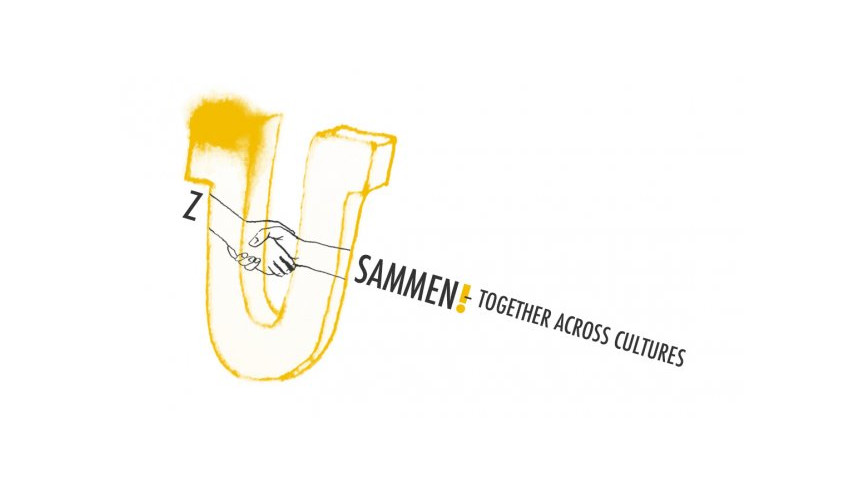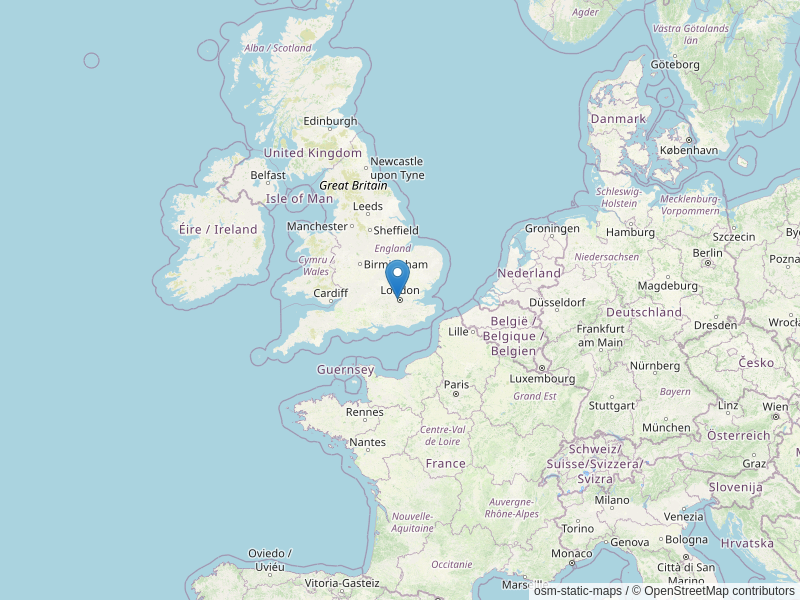Zusammen – Together Across Cultures

The German Academic Exchange Service (DAAD) and the IMLR are joining forces once again to invite all learners and lovers of German to take part in our German language competition.
On the occasion of the 70th anniversary of the DAAD London office and in context of the DAAD’s and the IMLR’s dedication to cultural understanding, academic exchange as well as language learning, this year’s competition is focusing on coming together, celebrating friendship and collaboration between people, countries and institutions beyond borders and across cultures. We therefore ask:
What does Zusammen – Together Across Cultures mean for you?
Tell us about friendship across borders or about initiatives across cultures within the German-speaking countries; perhaps imagine a future without borders altogether? We invite you to write a story, a poem or a song, make a video or podcast, draw a comic or cartoon, choose any form you like – in written or spoken German.
In the spirit of coming together we will not host a competition where candidates compete for the prizes. Instead, a panel of German language professionals will select the top three entries from each of the five categories (see below). The best entries will then be presented during a festival of language, colour and togetherness at the German Embassy in London on 4 May 2022.
Thanks to the generous contributions of our partner organisations and sponsors, fantastic prizes await all 15 candidates, who will also have the opportunity to present their entries at the final event. In addition, the general public attending the festival will then be able to vote for their ‘Publikumsliebling’ – their favourite entry on display. The winner of this category will have the chance to attend a German language course (face to face or online) at the Goethe-Institut in London for free!
In collaboration with a professional illustrator and graphic designer, the entries presented at the final event will be edited and enhanced with graphic design and illustrations. These entries can be seen at the final event or online on the DAAD London’s website.
Anyone who wishes to take part in the competition is asked to submit their idea of ‘Zusammen – Together Across Cultures‘. There are no rules as to the form of your submission. We simply ask you to either submit your entry in the category ‘spoken’, e.g. audios, podcasts, videos or ‘written’, e.g. texts, poems, comics.
HOW TO PARTICIPATE
To participate, please send the following two items to the DAAD London Team (address below):
- Registration Form
Participants are asked to fill in their contact details and select within which category they wish to submit their entry. The categories to choose from are as follows:
-
- University students of German Studies or students of other courses at university level containing German module
- German language students at universities’ language centres
- School and sixth-form College students from years 10 to 13
- German native speakers (please note: if you are a German or bilingual German native speaker, you must enter in this category!)
- Other: anyone who feels up for the challenge and does not fit the above categories
While the competition entries will be forwarded to our jury members, contact details will not be shared with any third parties.
Please be aware that only participants living in the UK and Ireland are eligible to take part in the competition.
- Your entry to the competition
Please send us your entry to the competition.
-
- If participants choose to submit an audio or video file: the length should be between two and three minutes. Please only send files in mp3/mp4/.avi format by using WETRANSFER, as video or audio files tend to be very bulky.
- If participants choose to submit the dialogue in written format: please send it as a PdF file. When being read out the length of the written dialogue should be between two and three minutes.
All submissions can be sent to events.londondaad.de between 10 January 2022 and 6 March 2022.
Please refer to the Submission Guidelines for further information on preparing your entry.
The Call for Entries and Forms to participate can be downloaded here:
-
Call for Entries [PDF, 204.55kb]
-
Submission Guidelines [PDF, 83.28kb]
-
GLC 2022 – Registration Form [PDF, 157.50kb]
In order to facilitate the integration of the competition into German classes, we have created teaching material and solutions with recommendations for each exercise for the following language levels: A1/A2, B1, B2 and C1/C2. The material is flexible and easy to adapt, teachers are given the option to either plan a whole lesson or to pick certain exercises to suit their usual class schedule.
The exercises reflect on topics dealing with living, working and communicating together and beyond cultures. They are designed in a way so that all four language skills (speaking, writing, listening and reading) are addressed.
The teaching material as well as the solutions to the exercises can be downloaded here:
-
Handreichung Lehrende [PDF, 603.78kb]
-
Leitfaden Lehrende [PDF, 109.93kb]
-
Unterrichtsmaterial [PDF, 1.10mb]
Stephan Ehrig is an Irish Research Council Postdoctoral Research Fellow at University College Dublin. He researches German literature around 1800 (especially Heinrich von Kleist) and engages with interdisciplinary approaches to East German culture (literature, theatre, film, architecture) but is also interested in how German culture generally can be re-located within transnational and ‘de-colonised’ approaches to the study of Modern Language Studies.
Paul Hoegger is co-ordinator and teacher of German at the Cambridge University Language Centre and Affiliated Lecturer at the Faculty of Modern and Medieval Languages and Linguistics of the University of Cambridge. He is also Director of Studies for Modern Languages at Fitzwilliam College Cambridge and teaches literary seminars at the Institute of Continuing Education of the University (Madingley Hall).
René Koglbauer is Dean of Lifelong Learning and Professional Practice and Professor of Professional Learning and Leadership at Newcastle University. René is the chair of the Board of Trustees of the Association for Language Learning and has previously been its president. René is the UK representative to the International German Teacher Association and an executive board member of the University Council for modern Languages.
Duncan Large is Professor of European Literature and Translation at the University of East Anglia in Norwich and Academic Director of the British Centre for Literary Translation. Till 2014 he was Professor of German and Head of the Department of Languages, Translation and Communication at Swansea University.
Joanne Leal is a Professor in German at Birkbeck, University of London, where she is also Interim Executive Dean of the School of Arts. She teaches and researches in the areas of twentieth and twenty-first century literature and film and has a particular interest in gender and sexuality and the representation of significant social issues, including migration and social exclusion.
Ina Linge is a Lecturer in German in the Department of Modern Languages and Cultures at the University of Exeter. She teaches and researches in the areas of twentieth and twenty-first century literature, film and visual culture. Her research and teaching contribute to the study of life writing, the history of sexuality, medical humanities and most recently animal studies.
Maria Roca Lizarazu is postdoctoral researcher in Creative Futures at the Moore Institute/NUI Galway. Her research interests include German Jewish literature and culture, memory studies, transnationalism, (post-)migration and citizenship. Maria is particularly interested in how Arts and Humanities research as well as creative methods can transform social, cultural and political responses to questions of migration, belonging and membership.
Maren de Vincent-Humphreys is a Language Teaching Officer in the German Section at the University of Cambridge. She is furthermore a Fellow of Jesus College, where she is also a Director of Studies for Modern and Medieval Languages. Her main interest lies in the psychology of language acquisition as well as using technologies for language teaching and learning.
Manuela Vogelgesang is Advisor for German at Goethe-Institut London. She works on different programmes for students and teacher trainings which focus on German language learning and intercultural experiences. Manuela previously worked as a language teacher and teacher trainer in German Schools.
Andrea Wilczynski is Head of the School of Modern Languages at Newcastle University. She has been a longstanding member of the School’s German Section where she currently teaches Interpreting and German language to final year students. She is a Senior Fellow of the Higher Education Academy.
Selection Process
In April, a jury comprised of 10 members were tasked with choosing the entries to proceed to the final event of the German Language Competition 2022.
Entrants were categorised in 3 categories: school pupils, university students and all others (native speakers, language centre students/others). A total of 15 entries were selected.
Results
Category: Schools
- Aaron Ung – Prince Henry’s Grammar School
- Aimee Caroll – Mintlaw Academy
- Calum Melville – Royal Grammar School High Wycombe
- Coco Lai – St. Smithun’s School
- Eleanor Voak – Oxford High School GDST
- Isabelle Crewe-Read – Cheltenham College
- Max Holden – Lady Manners School, Bakewell
- Metilda Lightfoot – Bilborough Sixth Form College
- Yeahjoon Koh – Brighton College Abu Dhabi
Category: Universities
- Abbie Hancock – Lancaster University
- Noémie Cadiou – UCL
- Philip Rouse – UCL
- Sara Karim – UCL
Category: All others
- Gloria Nzeako – Queen Mary’s University London
- Laura Hack – Notre Dame Catholic Girls’ School London
We would like to congratulate all successful candidates and thank those who took part. The jury were impressed with the quality of the entries this year and you should all be proud!
We look forward to seeing you in October at the main event!
If you have any questions regarding the German Language Competition, please contact us at events.londondaad.de.
We thank the following organisations for their continuous generous support:

German Language Competition 2022
Online Event hosted by IMLR:
Zusammen ‘Weiter Schreiben‘! A Dialogue between Writers across Languages and Cultures
Within this year’s German Language Competition, the IMLR will host an online event focussing on the project ‘Weiter Schreiben‘. Join the online dialogue between writer Annett Gröschner, Kurdish-Syrian poet Widad Nabi and ‘Weiter Schreiben‘ project leader Annika Reich. Together they showcase and discuss the partnerships between migrant and Germany-based authors that have emerged as part of the project. The discussion will be held in German. Registration required.






